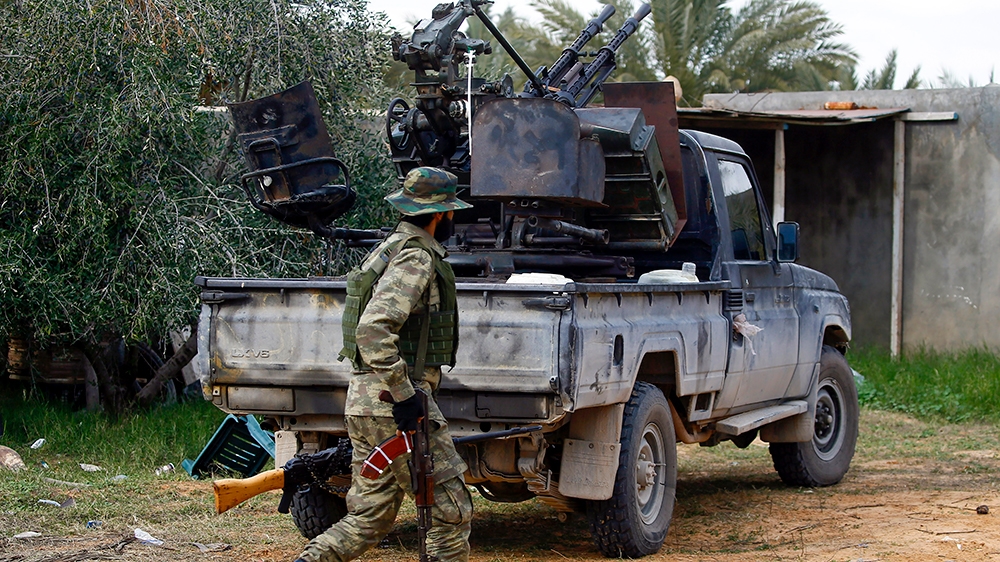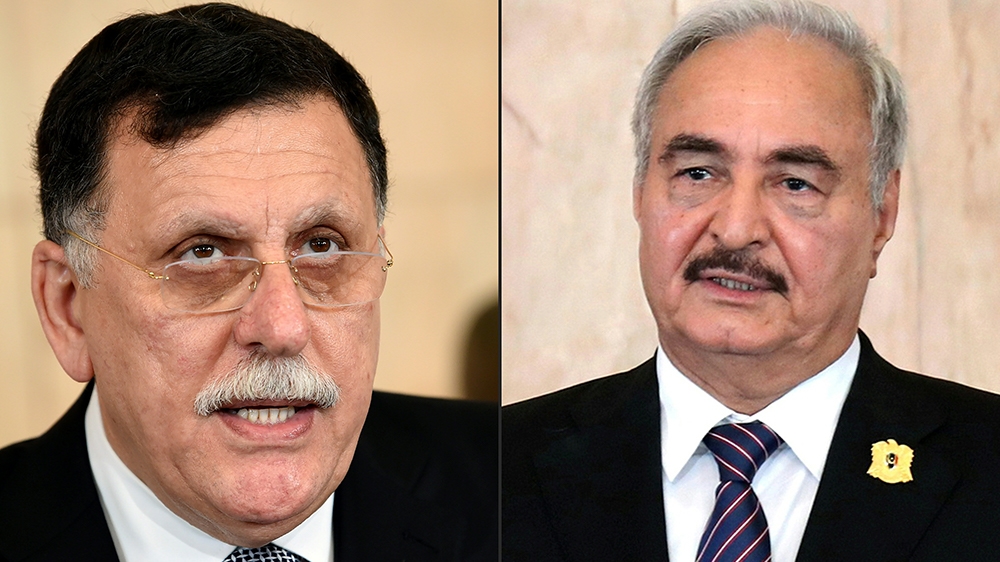
Rival camps and their foreign backers are arriving in Berlin for a summit on Sunday to discuss ways to end the long-running war in Libya, and prevent the conflict-wracked nation from disintegrating into a “second Syria”.
Germany and the United Nations hope to persuade Russia, Turkey, the United Arab Emirates and Egypt to get their opposing camps to agree on a lasting truce in Tripoli, home to the internationally-recognised government.
The presidents of Russia, Turkey and France are due for talks from around 2.00pm (1300 GMT). Leaders of both warring factions – the head of Tripoli’s UN-recognised government Fayez al-Sarraj and renegade general Khalifa Haftar – are also expected at the first such gathering since 2018.
More:
As with previous failed attempts, Haftar, who in April started a campaign to take Tripoli, will be centre stage and Western powers hope to put pressure on him to continue a ceasefire that has largely held for one week.
Haftar on Monday walked out on a Russo-Turkish summit, in contrast with his rival Fayez al-Serraj, the internationally-recognised prime minister, who signed a lasting truce proposal put forward to both leaders.
Forces loyal to Haftar, a former general from the regime of Muammar Gaddafi toppled in 2011, escalated the conflict on Friday when allied tribesmen shut down eastern oil ports, cutting oil production by 800,000 barrels a day, and crippling Tripoli’s main source of income.
|
Germany to host meeting aimed at ending Libya war |
The move was a protest against Turkey’s decision to send troops to shore up Sarraj’s Government of National Accord (GNA).
Focus on truce
The move underlined the devastating impact of what the UN has described as foreign interference, which the United Nations’ special envoy Ghassan Salame said had to stop.
“Libya needs all foreign interference to stop. That’s one of the objectives of this conference,” he told AFP on the eve of the meeting.
The UN hopes all sides will sign up to a plan to refrain from interference, and commit to a truce that leads to a lasting end to hostilities, according to a draft of a final communique seen by AFP.
That document also urges all parties to re-commit to a much-violated UN arms embargo and raises the prospect of political, inter-Libyan talks in Geneva at the end of the month.
If all goes to plan, the Berlin participants will hold an evening press conference.
The one-day summit will also include United States Secretary of States Mike Pompeo and European and Arab leaders.
Haftar is backed by the United Arab Emirates (UAE), Egypt, Jordan, Sudanese and Chadian fighters, and most recently Russian mercenaries. France has also given some support.
That has prompted Turkey to rush to Serraj’s rescue by sending troops to Tripoli. Up to 2,000 fighters from Syria’s civil war have also joined the battle to defend the capital, a United Nations official said on Saturday.
“I mean this is a regionwide conflict broadening, and looking increasingly like Syria which is why the whole international community is getting together in Germany,” a senior US state department official told reporters travelling with Pompeo.
Still, expectations were “moderate,” the official added.
‘Interfering actors’
Tarek Megerisi, a policy fellow with the North Africa and Middle East programme at the European Council on Foreign Relations, said there was no sign Haftar’s backers were pushing him to stop the war.
“That means that obtaining a commitment to maintain this forum where all interfering actors meet in the form of follow-up committees would likely be the most valuable output Germany could achieve,” he said.
Libya has been torn by fighting between rival armed factions since Gaddafi was ousted.
Most recently, Sarraj’s troops in Tripoli have been under attack since April from Haftar’s forces. A fragile ceasefire backed by both Ankara and Moscow was put in place on January 12.
Underlining the stakes involved, Germany’s Maas said “Europe and those players who are influential” in the region have all been called to Berlin, because “we have to make sure Libya doesn’t become a second Syria.”
“The conference can be the first step to peace for Libya,” Maas told the Bild newspaper.
On the eve of the Berlin talks, Turkey’s Erdogan warned Europe to stand united behind Sarraj’s government, as Tripoli’s fall could leave “fertile ground” for jihadist groups like the Islamic State group or Al-Qaeda “to get back on their feet”.
Erdogan also played up Europe’s fears of a repeat of the 2015 refugee crisis.
Accusing France in particular of siding with Haftar, Erdogan said leaving Libya to the commander would be a “mistake of historic proportions”.
|
Libya’s Haftar leaves Moscow without signing ceasefire agreement |
France has denied it was backing Haftar.
For Turkey, the GNA’s fall would risk jeopardising a maritime boundary agreement the parties signed. It gives Ankara extensive rights over the eastern Mediterranean where the recent discovery of undersea gas reserves has triggered a scramble by littoral states.
But Haftar is backed by Turkey’s fiercest regional rivals – Egypt, Saudi Arabia and the United Arab Emirates.
Erdogan has also accused Russia of sending in mercenaries to help Haftar, as Moscow seeks to extend its influence in the region.
Meanwhile, the European Union is watching with growing alarm at the escalating strife on its doorstep as it uses Libya as a gatekeeper deterring migrants from crossing the Mediterranean.
The International Crisis Group’s Libya expert Claudia Gazzini said the Berlin conference “could be a modest step forward” on the path to peace.
“Yet the risk remains that some participants will merely pay lip service to the diplomatic initiative, even as they continue to fuel a war from which they benefit.”














